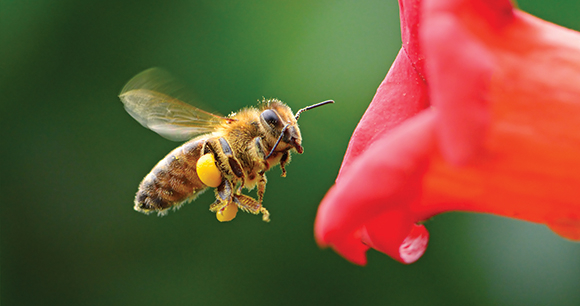
Washington, DC—The Animal Welfare Institute (AWI) announced today the nine recipients of its Christine Stevens Wildlife Award who are developing humane solutions to human-wildlife conflicts and less intrusive methods to study wildlife.
The award provides individual grants of up to $15,000 and is named in honor of AWI’s late founder and longtime president, who dedicated her life to reducing animal suffering both here and abroad. Stevens founded AWI in 1951 to end the cruel treatment of animals in experimental laboratories. Inevitably, her work expanded to take on other animal welfare causes, including protecting vulnerable species, reforming methods used to raise animals for food, banning steel-jaw leghold traps, ending commercial whaling, and much more.
Since the grant program launched in 2006, AWI has contributed more than $1.1 million to support over 110 research projects in North America. This year, AWI received over 40 applications that proposed novel approaches to humanely remedy human-wildlife conflicts — from lead poisoning of raptors to deer-vehicle collisions — and developing new, less invasive methods to study wildlife.
“AWI is proud to continue our tradition of funding diverse, innovative research that uses nonlethal techniques to improve the study of wildlife,” said Susan Millward, AWI’s CEO and executive director.
The 2024 Christine Stevens Wildlife Award grant recipients are:
- Dr. Nevé Baker, University of Minnesota, for using environmental DNA to monitor aquatic ecosystems supported by beaver engineering in agricultural areas in Minnesota and Wisconsin.
- Dr. Carlos Delgado Martínez, National Autonomous University of Mexico, to install rainwater collection systems to reduce wildlife encroachment on apiaries in Calakmul, Mexico, and promote coexistence of beekeepers, birds, and mammals.
- Katelyn Depot, McGill University, to test noninvasive techniques, such as motion-activated cameras and fecal sample collection, to monitor the diet of the tufted puffin, a declining seabird species.
- Dr. Emily Fairfax, University of Minnesota, to evaluate the effectiveness of minimally invasive electronic tags in tracking beavers following reintroduction programs.
- Dr. Myra Finkelstein, University of California, Santa Cruz, to determine if feathers can be used as a noninvasive biological marker to assess the health effects from lead exposure in eagles.
- Anmol Karan and Shaurya Jain, Thomas Jefferson High School for Science and Technology, to test the effectiveness of using low-cost biosonic and ultrasonic repellents to mitigate deer-vehicle collisions in Virginia.
- Dr. Susan McRae, East Carolina University, to use scent lures to increase the effectiveness of trail cameras to noninvasively monitor eastern black rails, a threatened marsh bird species.
- Dr. Valeria Vergara, Raincoast Conservation Foundation, to develop a collaborative underwater noise monitoring and mapping initiative to support the recovery of at-risk marine species.
Click here for more information about the Christine Stevens Wildlife Award and the 2024 winners.
Marjorie Fishman, Animal Welfare Institute
202-446-2128, [email protected]
The Animal Welfare Institute is a nonprofit charitable organization founded in 1951 and dedicated to alleviating animal suffering caused by people. We seek to improve the welfare of animals everywhere: in agriculture, in commerce, in our homes and communities, in research, and in the wild. Follow us on Facebook, X (formerly Twitter), and Instagram for updates and other important animal protection news.